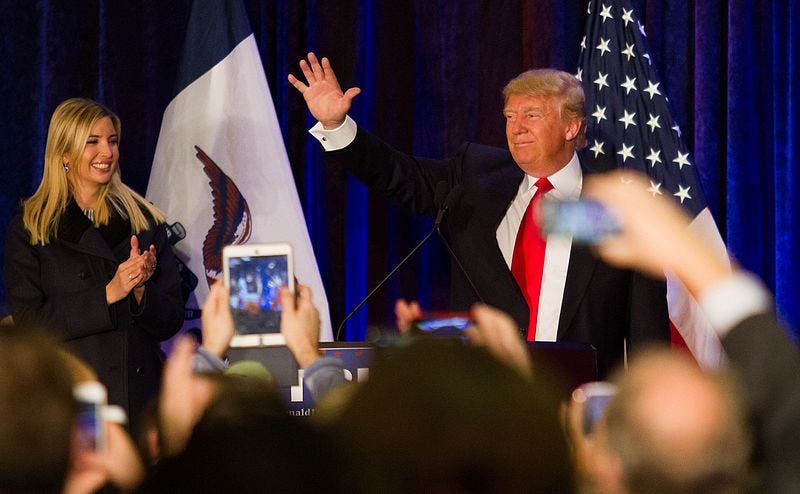Conspiracy theories about Iowa only help one campaign: Trump’s
My latest in the Washington Post on the Iowa caucuses, and why Democrats of all stripes should shun conspiracy theories about them

As you may have heard, the Iowa caucuses were last night, and we still don’t know which Democrat won. That vacuum, caused by a faulty vote-reporting app and human error, has quickly been filled by conspiracy theorists.
On one side, you have understandably frustrated Bernie Sanders supporters who believe this delay has robbed their candidate of a victory that was predicted by the polls. A good number of the campaign’s surrogates and backers have attempted to pin this result on the Democratic establishment, citing an array of mistaken conspiratorial claims.
On the other side, the entirety of Trumpworld—from his campaign manager, to his campaign press secretary, to his sons—has mobilized online to spread the assertion that the primary was “rigged.” Both these groups, I write in the Washington Post, are wrong on the facts, but one of them benefits far more from undermining faith in the primary process—and it’s not Bernie’s people.
Having covered the past three presidential elections, I can tell you that the Democratic Party is neither monolithic enough nor competent enough to rig a Little League game, let alone a primary. (Ironically, on the very day that the party was being painted as a ruthless rigger of elections, it was actually placing two of its top convention officials on leave for allegedly fostering a toxic work environment.) Moreover, as BuzzFeed editor Ben Smith noted, the Iowa caucuses are pretty impossible to rig, because unlike secret-ballot primaries, they are done in public, before TV and Twitter cameras, and on paper.
But there is a dark logic to Team Trump’s instant amplification of conspiracy theories surrounding the Iowa caucuses, and it’s one that should give pause to any supporters of the Democratic candidates. Simply put, Trumpworld is pushing the “rigged Democratic primary” narrative with no evidence because conspiracy theories disempower those who believe them. And Trump’s team wants to disempower its opposition and erode their trust in the process so that they don't participate.
This is precisely how conspiracy theories debilitate those who accept them: They offload blame for problems onto shadowy cabals and thus prevent people from rationally overcoming those problems. As one more intellectually honest pundit on the right noted, “I don’t think Iowa sabotaged the caucus to hurt Bernie Sanders. But I really hope a lot of Bernie Sanders supporters think that.”
Later on, I explain how studying anti-Semitic conspiracy theories—and what they do to anti-Semites themselves—helps us understand how conspiracy theories like these debilitate those who buy into them.
Oh, and stay tuned for a really fun story I have coming out later this week that has absolutely nothing to do with politics or anti-Semitism!



